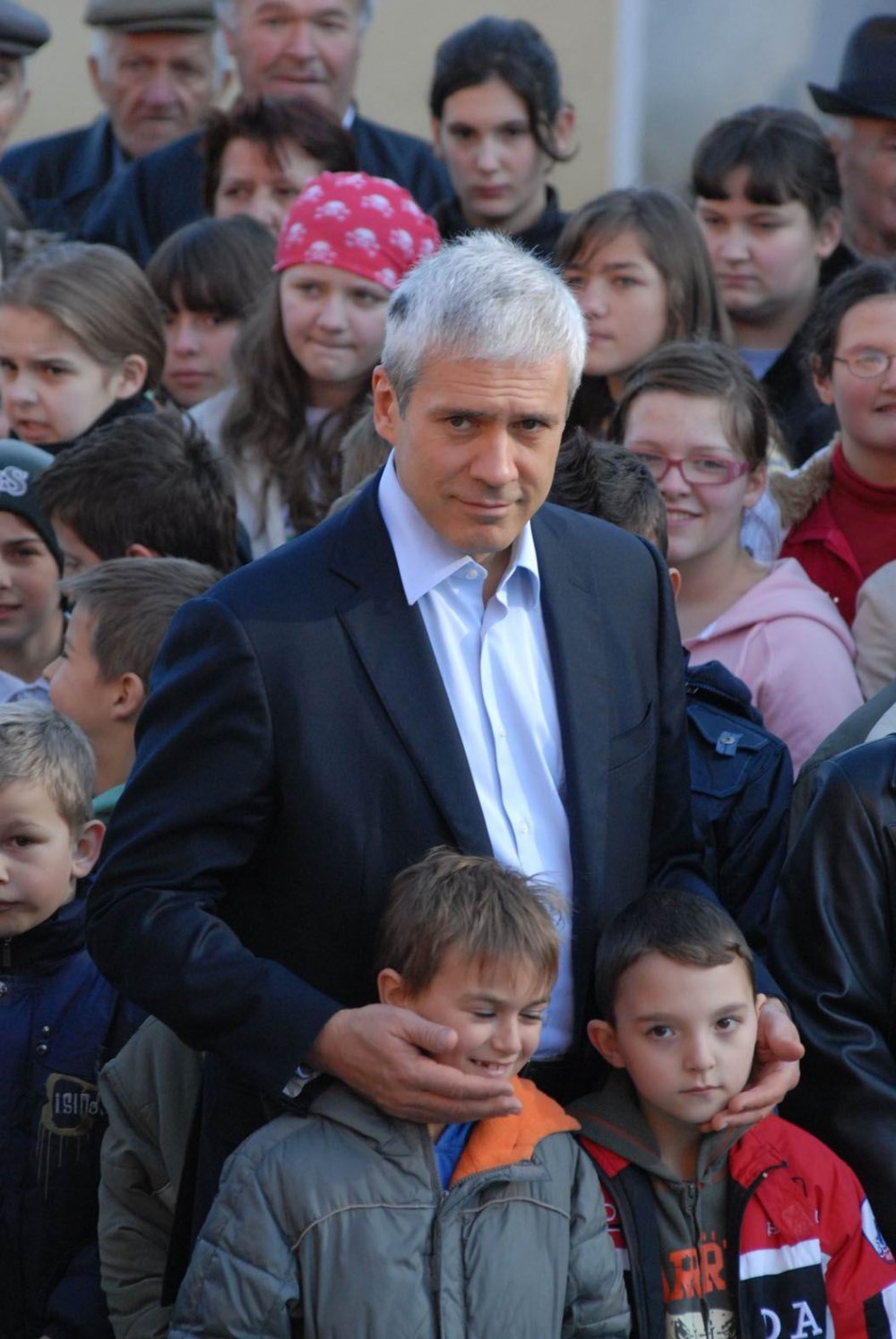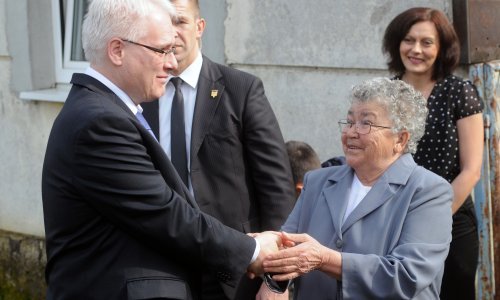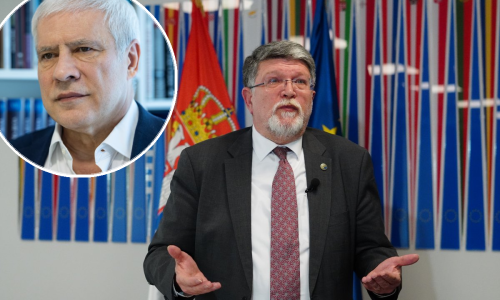Croatian President Ivo Josipovic said in Krnjak on Thursday that he was visiting, together with Serbian President Boris Tadic, this village in which Croats and Serbs, after a difficult history, were trying to coexist, pledging that Croatia would invest maximum effort so that post-war return, reconstruction and coexistence could be the best possible for all, regardless of ethnicity.
The village in the area of Karlovac has a population of Serb returnees and Croats who fled from Bosnia and Herzegovina.
Josipovic said war scars were painful and difficult to remove, but that Krnjak was evidence of joint efforts at coexistence, which he said was mainly a success, despite pending problems such as missing persons, returnees, and completion of reconstruction.
"A policy which acknowledges differences but does not separate people, in fundamental rights, according to ethnicity or faith, is a policy that contributes to the return, security and understanding among people," said Josipovic.
"I think that such a policy is being implemented in Croatia, that the experience is good in principle, but we are aware of existing problems, prejudices and resistance, so we will continue strengthening legal security, creating economic foundations for return, but also paying appropriate attention to cultural identity," said Josipovic.
Tadic said a big difficulty in solving problems stemmed from the fact that one legal system was at one time followed by lawlessness and that now legal order had to be restored, which he said was not simple and would take time, but that it was possible.
"This is the message from Krnjak. We came here to break prejudices, animosities and fears and to attempt to bring people closer, but by acknowledging diversity in identity," he said.
Josipovic said there were also those who would not return for various reasons, regretting that young people were not coming back, but added this was a personal choice which the Croatian state could impact by stepping up reconstruction, opening jobs and providing conditions for normal and prosperous living.
Tadic said a new stage of relations had been entered on the entire territory of the former Yugoslavia, including between Croatia and Serbia, and that every country was investing huge efforts to improve living and prospects for their citizens.
Speaking of Croats who fled Bosnia's Serb entity, "who have their own problems and came here to find a future," Tadic said he would raise this issue with the entity's President Milorad Dodik.
Asked by press what Serbia would do to make life easier for Croats in its northern province of Vojvodina, Tadic said the fundamental effort regarded the legal order and then property restitution. He called on Croats to take part in all of Serbia's state institutions and thus achieve full institutional protection.
"We haven't achieved in that everything I wanted because Croats didn't take part in elections for national councils, perhaps also out of fear to register. All other ethnic communities and national minorities took part, so that doesn't make me feel good," Tadic said, but added that he had agreed with Croats that they would take part in the next election.
He called on Croats to register in voter lists, guaranteeing them full protection, as to every Serbian citizen.
"Croats are represented in Serbia's state institutions, work in the most senior positions, and I assure you that it will remain so," said Tadic.
Prior to the 1991-95 Homeland War, Krnjak had about 6,000 inhabitants, virtually all Serbs, the majority of whom fled due to the war. A little over a quarter have come back and current figures show that Krnjak has a population of about 2,200 Croatian Serbs and about 2,000 Bosnian Croats, who moved to the village after being forced to leave their homes in the Bosnian Serb entity.
After Krnjak, Tadic and Josipovic were scheduled to visit Gracac.

































